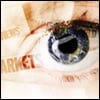
You learn a lot about yourself and your community when relentless weather snarls all your plans. There are the heroic efforts of nameless shovelers rescuing snowbound drivers, hard-headed dopes who defy the reports and head out to the mall only to spend the night stranded on a snow-covered roadway, and playful grownups grateful for a chance to be a kid again and play in the snow.
Two days after a record snowfall, a friend knocked on the Chabad House back door and asked for a shovel—believing the worst was over, he had headed down the alley behind us and gotten stuck. I gave him the shovel, and when I hadn’t heard from him after fifteen minutes I assumed he had dug himself out, as hearty Chicagoans do. A half hour passed, and he reappeared to ask if we had an icebreaker. Apparently I missed the original opportunity to offer assistance—I may be slow but I ain’t stupid—so in addition to getting out the heavier tool, I put on my coat and went to liberate his Honda.
Every cold-weather citizen knows it’s all about the momentumEvery cold-weather citizen knows it’s all about the momentum: find a dry spot, rock the car back and forth, gun the engine, push, reverse, drive, reverse, drive, go, go, go, and voila, you are free. Well, he had really gotten stuck; the tire tracks he thought he could follow must have been made by a monster truck, and his modest sedan was jammed in a snowbank between the grooves—his attempt to bulldoze through it had only made it worse—there was no give, no movement, nothing at all. Long story short (hope it’s not too late for that), an hour and half later we got him free.
So what was the lesson? How was my life enriched by this experience? We are all stuck in different ways. As a people, we are stuck in exile, stuck in the wake of two thousand years of homelessness. In our individual lives, some are stuck in a job we hate, or in a mediocre relationship, resigned to a second-rate life. Most personal disappointments in isolation seem rather petty, certainly manageable, and at least tolerable; it’s the accumulation that wears us down. Snow is the same: any handful is powerless against us—it’s the buildup that neutralizes us.
So how do we prepare for it, overcome it and grow from it? The first step is information. The weathermen told us it was coming—they told us to get home early, stock up on food and stay off the roads. The experts, generations of Torah scholars, the Rebbe, warn us about the ferocity of exile and the toll it takes on the unprepared. Arrogantly, some think themselves stronger than nature, able to defy its might and thus take no precautions. We assume we can sustain our Jewish identity without stocking up with plentiful supplies of Jewish warmth, energy and study. We think we can stay late at the office longing for a deal that never comes (everyone else is home by a warm fireplace), and that our children will still love their Judaism despite our display that nothing is more important than “success.” When we are attentive we learn the value of planning ahead, we ready our supplies, invest in mitzvot and enjoy the benefit when the blizzard strikes.
Back to my friend and his snowbound car. My mental/emotional state was everywhere: frustration probably at the top of the list, despair a close second, determination limping along in the background, and hopeless surrender vying for a seat at the table. And there was a dose, I am ashamed to confess, of heartless disregard—hey, it’s his fault, who asked him to drive there, it’s not my car anyway.
The Rebbe teaches us never to blame, never to dwell on explaining how someone got stuck; just grab your earmuffs and dig him out, then on to the next one. Each stuck motorist is your problem, regardless of how they got there, regardless of how many warnings they ignored—your door was knocked on, you were made aware; that means you are part of the solution. We have to innovate, be radical, think beyond the shovelGo ahead and ask the neighbors, avail yourself of every resource, but their failings won’t alleviate your responsibility. It just means you have more to do. Try salting the spot, turning the wheels, revving the engine before shifting—they are all good ideas. We have to innovate, be radical, think beyond the shovel. No one is leaving till we get this done; as long as he is here we are all here.
Ultimately, it is the composite of all of these tactics that got my friend home that night, and the same is true of us. Keep on with the mitzvot, more acts of goodness and kindness, more charity, more learning, more Shabbat guests, and sprinkle in some fresh strategies, and the cumulative total will break through the frustrating hold that exile appears to have on us. And let me tell you—there is no comparison to the sweet sensation of success when liberty comes.






